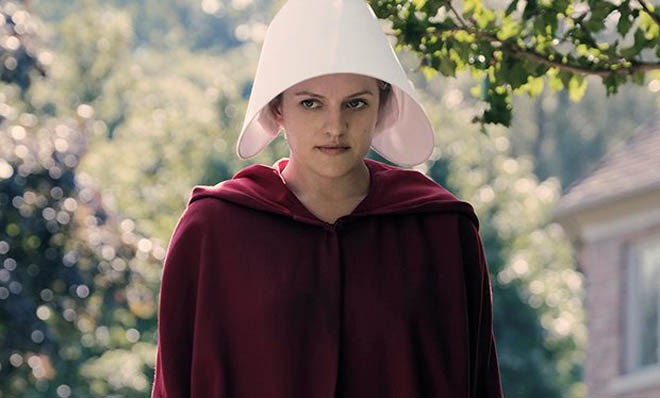
A tv adaptation of Atwood’s dystopian tale depicts much that is familiar in today’s religio-political climate

Dear All,
I was amused to read a news piece saying that although last year critics thought that the Netflix series, House of Cards, was going "over the top" in its depiction of corruption and nepotism at the White House, in the post-November climate this no longer seems particularly far-fetched.
And it’s not just the political machinations of Frank Underwood and his wife that are now evoking a disturbing sense of deja vu: Orwell’s 1984 gave us a template of a society under constant surveillance, and gave us a name for it too -- ‘Big Brother is Watching’. The megalomaniac computer ‘Hal’ from Kubrick’s film A Space Odyssey is how we envision and quantify the disastrous consequence of us humans losing control of artificial intelligence (losing control of AI has been deemed a looming crisis by Professor Stephen Hawking who says AI is now the biggest threat to humankind). And now there is a resurgence of interest in Margaret Atwood’s dystopian story, The Handmaid’s Tale, largely because of a tv adaptation that makes the story seem rather more credible and much more possible than an early reading of the 1985 novel did.
Atwood’s story is set in an America ruled over by the Republic of Gillead, which has imposed a totalitarian Christian-based theocracy on the country. A recent crisis of national fertility has provided an opportunity for the Republic to order society in a rigid hierarchy where privileged women are elite wives and others are either ‘handmaids’ who are breeding machines for elite families or, if they are infertile, they are designated domestic servants or ‘Marthas’.
It’s a repressive and regimented society governed by oppressive religious norms and prescribed protocols: all greetings praise the Lord and mention God’s mercy or wrath. Punishments are primitive and bloody, and drive from Old Testament stories. And everybody is under surveillance all the time, all are never quite sure who is a spy or informer in their midst. A war with the ‘rebels’ is ongoing, and people try to escape by getting to and crossing the border to Canada for sanctuary.
The handmaid who narrates this story is known as Offred -- it is not her real name but simply indicates she is the property of Fred. This is just one of the ways that this social order strips these women of their identity and dignity -- they are chattel, depersonalised and subjugated.
The tv adaptation captures well the sense of fear and repression of this religion-based society, and the deflating rage and primitive survival urges it unleashes in its citizens. The setting looks like it could be Washington DC, and the elite family Offred serves lives in an area that looks very like Georgetown.
It is compelling viewing, and it has propelled Atwood’s novel to the bestseller charts: within hours of the first episode being broadcast in the UK last week, the paperback of the book had reached No. 1 on Amazon.
Why has the story struck such a chord? A major reason of course is the recognizabilty: the current political climate of self-righteous and chauvinist discourse that we see sweeping across the globe. We have witnessed theocratic militias gaining ground and capturing lands they then begin to rule over ruthlessly (Swat, Afghanistan, Wacca, various US cult communities etc. etc.), we see the rise of misogyny and the concerted efforts to take away women’s rights and freedoms, and reduce them to creatures whose sexuality is a threat and a danger, and whose fertility must be controlled. And we see how religion is used as the framework for all of this.
Atwood’s story disturbs because of its plausibility. It was a warning bell in 1985, and it is one now.
We should take notice.
Best wishes,